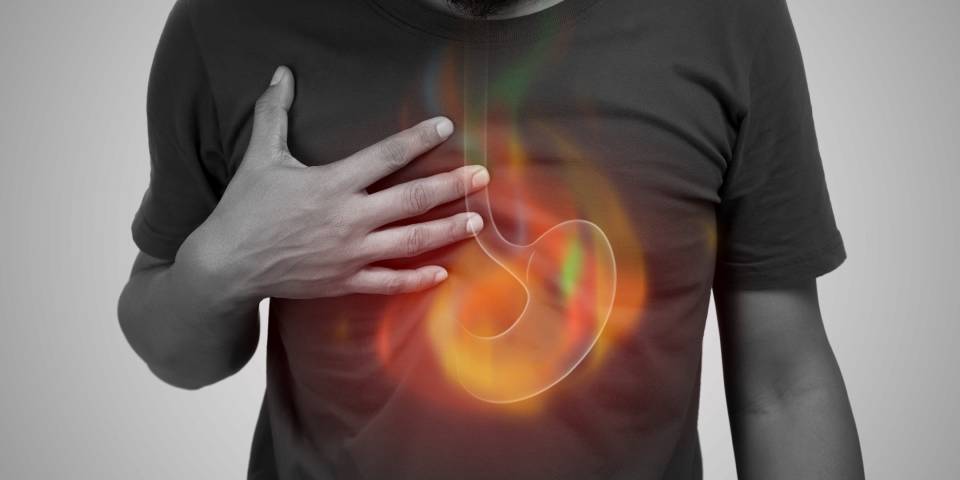
- August 23, 2023
- Dr. Vikrant Kale
- 0 Comments
- Latest Blogs
Gastritis: All You Need To Know!
Gastritis is a common digestive disorder that affects millions of individuals worldwide. While it may not always be a serious condition, it can cause discomfort and, if left untreated, lead to more severe complications. In this comprehensive guide, we’ll delve into all you need to know about gastritis, its causes, symptoms, diagnosis, and treatment options. Dr. Vikrant Kale, a gastroenterologist in Pune, Maharashtra, sheds light on this topic to help you better understand and manage gastritis.
What is Gastritis?
Gastritis refers to the inflammation, irritation, or erosion of the lining of the stomach. The stomach lining is a critical component of the digestive system, responsible for producing digestive juices and enzymes essential for breaking down food. When this lining becomes inflamed, it can disrupt the normal digestive process, causing different symptoms and discomfort.
Causes of Gastritis:
Dr. Vikrant Kale emphasizes several factors that can trigger gastritis:
- Helicobacter Pylori Infection: One of the leading causes of gastritis is infection with the bacteria Helicobacter pylori (H. pylori). This bacterium can weaken the stomach’s protective mucous layer, allowing stomach acid to damage the lining.
- Excessive Alcohol Consumption: Chronic alcohol abuse can irritate and erode the abdomen lining, leading to gastritis.
- Regular Use of Nonsteroidal Anti-Inflammatory Drugs (NSAIDs): Common pain relievers like ibuprofen and aspirin, when used frequently and over a long period, can lead to gastritis.
- Stress: While stress alone may not cause gastritis, it can worsen existing signs and slow the healing process.
- Autoimmune Conditions: In rare cases, the immune system may mistakenly attack and damage the stomach lining, leading to autoimmune gastritis.
Symptoms of Gastritis:
The symptoms of gastritis can vary in intensity and period. Common signs and symptoms include:
- Abdominal pain or discomfort
- Nausea and vomiting
- Indigestion or heartburn
- Loss of appetite
- Bloating
- Belching
- Black, tarry stools (indicating bleeding)
- Feeling full quickly while eating
- Blood in Stool
- Burning Sensation
- Weight loss
Diagnosis:
If you experience persistent symptoms of gastritis, it’s essential to seek medical evaluation. Dr. Vikrant Kale explains that a diagnosis normally involves a combination of:
- Medical History: Your doctor will ask about your signs, diet, lifestyle, and any medications or supplements you’re taking.
- Physical Examination: A physical examination may be performed to inspect for signs of gastritis.
- Endoscopy: This process involves inserting a flexible tube with a camera into your stomach to directly view the lining and take tissue samples for analysis.
- Blood Tests: Blood tests may be conducted to check for H. pylori infection or anemia, which can result from bleeding caused by gastritis.
Treatment Options:
The treatment of gastritis depends on its cause and rigor. Dr. Vikrant Kale outlines several possible treatment approaches:
- Antibiotics: If H. pylori infection is detected, a course of antibiotics will be prescribed to kill the bacteria.
- Medications: Proton pump inhibitors (PPIs) and antacids can assist decrease stomach acid and alleviate symptoms.
- Avoiding Triggers: If your gastritis is triggered by alcohol, NSAIDs, or certain foods, avoiding these triggers is critical.
- Dietary Changes: A diet that includes smaller, more frequent meals and avoids spicy, acidic, or greasy foods can relieve symptoms.
- Stress Management: Learning stress-reduction methods can be beneficial for those with stress-induced gastritis.
- Treating Underlying Conditions: If an underlying condition like an autoimmune condition is causing gastritis, managing that condition is essential.
- Lifestyle Changes: Avoiding alcohol, decreasing NSAID usage, managing stress, and adopting a healthy diet can aid in preventing and managing gastritis.
- Regular Check-ups: Chronic gastritis should be monitored regularly by a healthcare professional to prevent complications.
Here are some additional tips for managing gastritis:
- Drink plenty of fluids, such as water, clear broth, and ginger ale.
- Take over-the-counter medications, such as antacids or proton pump inhibitors, to decrease stomach acid production.
- Get plenty of rest.
- Avoid activities that can worsen your symptoms, such as smoking and drinking alcohol.
- Manage stress.
- Avoid spicy, fatty, and acidic foods.
- Eat small, frequent meals.
If you have any questions or troubles with gastritis, be sure to talk to your doctor.
Conclusion:
Gastritis is a common digestive issue that can range from mild discomfort to severe complications if left untreated. Dr. Vikrant Kale emphasizes the significance of seeking medical advice if you suspect gastritis to receive an accurate diagnosis and proper treatment. With the right guidance and management, most cases of gastritis can be effectively controlled, improving your overall digestive health and quality of life. Remember, a healthy lifestyle and a balanced diet play a crucial role in preventing gastritis and sustaining optimal gastrointestinal health.

